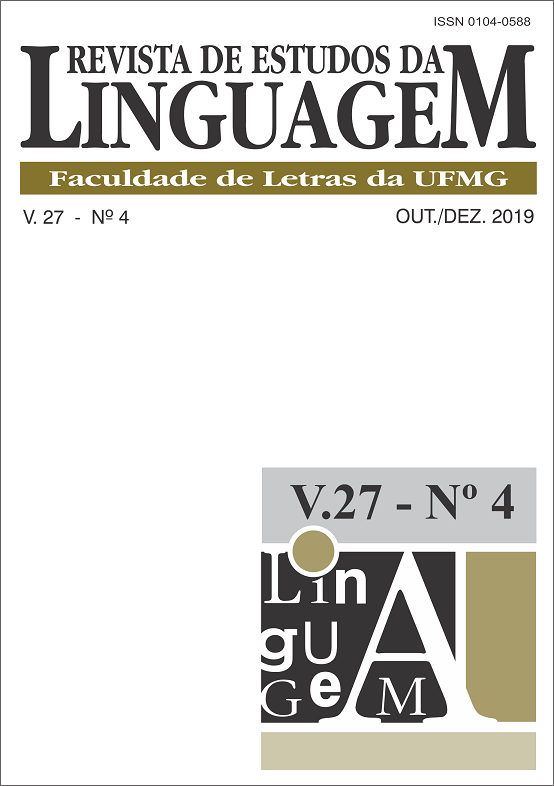“Not from a ‘Danish’ home; typical of trying to sound ‘tough’” – Indexical meanings of variation in /s/ and /t/ in the speech of adolescent girls in Copenhagen / “Não é de família dinamarquesa; mas é típico de tentar parecer ‘durona’” – Significados indiciais das variáveis /s/ e /t/ na fala de meninas adolescentes em Copenhague
DOI:
https://doi.org/10.17851/2237-2083.27.4.1701-1736Palabras clave:
indexicality, perception, female speech, sociophonetics, Danish, indicialidade, percepção, fala de mulheres, sociofonética, dinamarquês.Resumen
Abstract: The aim of this article is to examine the social meaning of /s/- and /t/-variation for Copenhagen girls in two different registers. The examined features consist of [s] and [tˢ], which are considered the standard variants, and [s+] and [tʲ] which carry different social connotations. Both variables are examined in the registers modern Copenhagen speech and street language in two different matched guise experiments. Stimuli for both experiments consist of segmentally manipulated natural speech, and experiment 1 was conducted with open responses, while experiment 2 used fixed scales based on experiment 1. Both experiments show that /s/-variation has little to no effect in both registers. This is surprising because [s+] is commonly perceived to index femininity and to be an integrated part of the street register. For/t/-variation, the presence of [tʲ] significantly indexes non-Danish ethnic background and the Western suburbs of Copenhagen, which are traditionally associated with the working class and mixed ethnic backgrounds. Finally, there are significant effects of prosodic frames alone. These link modern Copenhagen speech to intelligence and the Northern suburbs of Copenhagen, which traditionally denote upper middle class, and street language to non-Danish ethnic background, the Western suburbs of Copenhagen, and playing tough.
Keywords: indexicality; perception; female speech; sociophonetics; Danish.
Resumo: O objetivo desse artigo é examinar os significados sociais das variáveis /s/ e /t/ em dois registros distintos na fala de meninas em Copenhague. As variantes examinadas são [s] and [tˢ], consideradas variantes padrão, bem como [s+] and [tʲ], que veiculam diferentes conotações sociais. Ambas variáveis são examinadas nos registros fala moderna em Copenhague e linguagem de rua, em dois experimentos do tipo matched-guise. Os estímulos para ambos experimentos consistem de trechos de fala natural manipulados, mas o experimento 1 foi conduzido com respostas abertas, enquanto o experimento 2 utilizou escalas, estabelecidas com base no experimento 1. Os dois experimentos mostram que a variável /s/ não tem praticamente nenhum efeito na percepção dos registros. Esse é um resultado inesperado, na medida em que [s+] é comumente percebido como um índice de femininidade e é parte integrante do registro linguagem de rua. Para a variável /t/, a presença de [tʲ] indicia significativamente uma descendência não dinamarquesa e é associada aos subúrbios do oeste de Copenhague, tradicionalmente associados a classe trabalhadora e miscigenação étnica. Finalmente, há efeitos significativos de frames prosódicos, isoladamente: por um lado, fala moderna em copenhague é associada a inteligência e aos subúrbios do norte da cidade (estes últimos, tradicionalmente entendidos como uma região de classe média alta); por outro lado, por meio dos mesmos frames prosódicos, linguagem de rua associa-se a etnia não dinamarquesa, aos subúrbios do oeste de Copenhague, e a uma postura “durona”.
Palavras-chave: indicialidade; percepção; fala de mulheres; sociofonética; dinamarquês.





